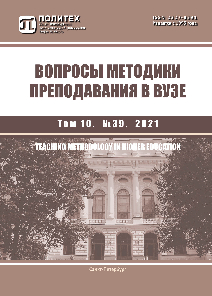ANALYSIS OF MACHINE TRANSLATION ERRORS AS MEANS OF FORMING CRITIAL THINKING IN LINGUISTS
Abstract. The article presents the university experience of forming critical thinking among students of linguistics through the analysis of machine translation errors. Critical thinking today is a key competence of any modern specialist and is manifested in their ability not only to master new knowledge and technologies, but also to obtain information, critically comprehend and synthesize it, thus managing it. The authors of the article note that the concept of critical thinking is being constantly clarified. Nevertheless, in general, critical thinking is a conditional concept, which began to denote a scientific type of thinking for solving non-routine, complex, mostly special practical tasks. The development of critical thinking occurs throughout life, including professional one. The most favorable period for the formation of this type of thinking falls on the years of university studies. The Federal State Educational Standard of Higher Education in the areas of bachelor's degree defined groups of universal, general professional and professional competences of graduates, among which systemic and critical thinking was declared as a universal, i.e. key, competence of future specialists. The authors of the article present the results of teaching linguistic students the analysis of machine translation, which was used as a method for forming critical thinking.



